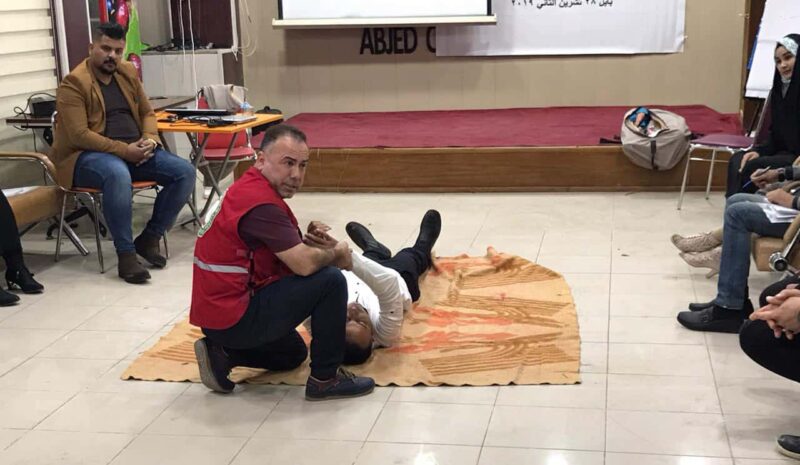I am sorry to say that most journalists and human rights defenders in Iraq are suffering greatly from a lack of physical and digital security protections. We are increasingly becoming the victims of cybercrimes, particularly extortion and electronic hacking through social media, and open physical attacks in broad daylight. Iraq does not have a comprehensive law regulating use of social media and/or criminalizing online attacks. Virtually no woman in Iraq has been immune to these verbal and physical attacks. Women who engage in public life are frequent victims of harassment and threats both in-person and online – an estimated 8 in 10 women in Iraq have been sexually harassed.
As an Iraqi journalist and a woman working in the field of defending human rights and women’s rights in particular, I have had nothing to enable me to protect myself or my data except for some basic information. Most of the time, I was sharing my personal information and disclosing my places, works and travel details, which unknowingly made me vulnerable to a lot of risks that might have threatened my life.
Learning how to protect myself from online and physical threats
In October 2018, I was one of 12 journalists trained by Internews under its’ Women’s Voices program in a training-of-trainers, to develop a cohort of local experts on digital security and physical safety. During the 10-day training course, I benefited a lot from the learning experiences and skills-building opportunities provided. I learned tips to secure personal social media and web accounts, mechanisms for more secure internet access, and physical safety procedures such as risk and threat assessment and ways to protect myself in the event of kidnapping, arrest, or harassment. Fellow participants shared personal stories of dangers they have faced, which helped me learn about mistakes that could expose me to grave risk.
A close call
After the training, I incorporated my newly acquired digital safety skills into both my personal and physical life. I created new passwords, used more secure browser settings, and adapted my daily routines (routes traveled, publicly sharing information on my physical location, etc.). Due to the nature of my work, however, I continue to be a visible presence at demonstrations and online covering the work of activists and human rights defenders. I have been subjected to threats, intimidation, and harassment both in-person and online. While covering a recent protest, I was chased by unknown assailants on motorcycles. It is thanks to the skills I learned during the Internews training that I was able to evade them and safely return home.
Sharing the knowledge with other women journalists
I have also utilized my skills and experience to provide a lot of advice to colleagues in this field. I have conducted numerous workshops, hosted awareness raising sessions, and developed a training curriculum focused on digital security protections. I conducted a workshop on digital and physical protection for a number of women journalists and human rights defenders in Al Diwaniyah Governorate in cooperation with a colleague also trained by Internews. Then, I carried out another training for the same target group in Najaf. After that I started posting tips on digital and physical protection on my personal Facebook account.
I was chosen by the National Syndicate of Iraqi Journalists to deliver a workshop on physical safety targeting 21 journalists from Al-Furat Al-Awsat (Middle Euphrates) who work as field reporters for a variety of media outlets. I prepared a training kit that included the most important information that enables them to protect themselves. I have collaborated with the National Syndicate to conduct additional workshops both in 2019 and 2020 (pre-COVID).
Journalists and activists face continuing threats
Due to current political conditions and increasing social unrest, the environment has now become very dangerous for journalists, human rights defenders, and activists. In August, several prominent human rights defenders were shot at point blank range and killed simply for demanding justice. Many others unnamed have been subjected to kidnapping, killing and intimidation. While I continue to do what I can to launch online sessions, I cannot travel to all regions of Iraq due to coronavirus and continued security threats I face.
I am very thankful to Internews for this great opportunity that helped me to protect myself, my family and others by raising awareness and disseminating the information that I have. Although the Women’s Voices program recently ended (June 2020), the skills that myself and others have gained will continue to have a lasting impact on the lives of Iraqi journalists and human rights defenders.
(Banner photo: Safety training workshop for journalists in Iraq. Credit: National Union of Journalists-Iraq)
